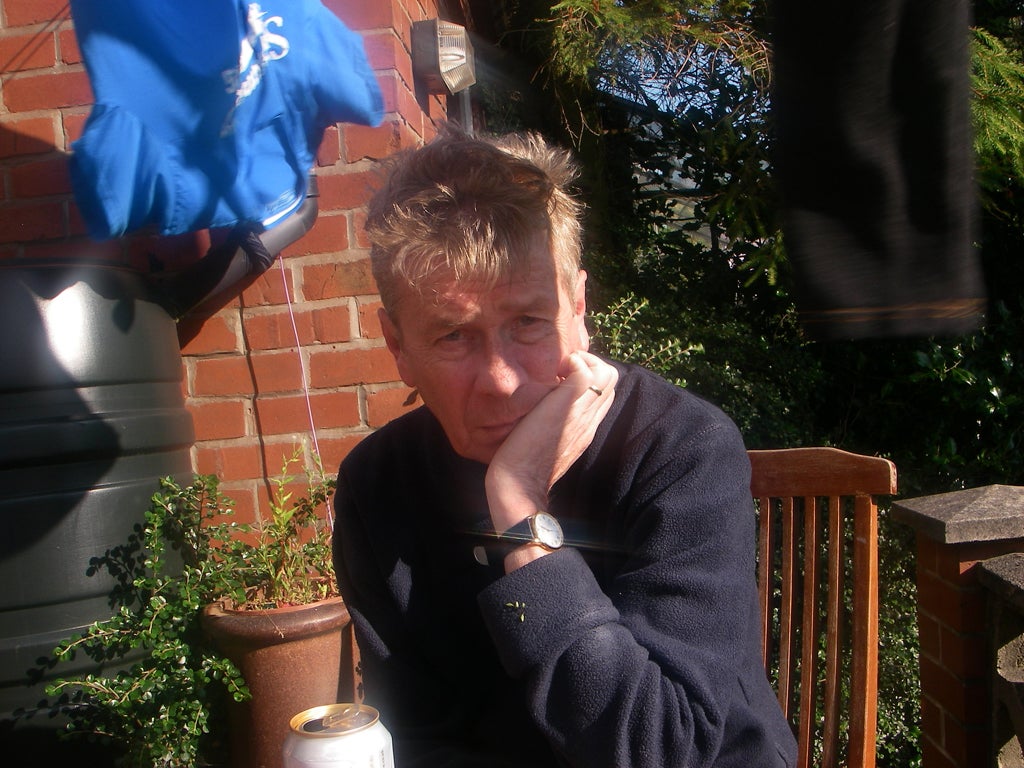Dr David Macey: Internationally renowned French scholar

Your support helps us to tell the story
From reproductive rights to climate change to Big Tech, The Independent is on the ground when the story is developing. Whether it's investigating the financials of Elon Musk's pro-Trump PAC or producing our latest documentary, 'The A Word', which shines a light on the American women fighting for reproductive rights, we know how important it is to parse out the facts from the messaging.
At such a critical moment in US history, we need reporters on the ground. Your donation allows us to keep sending journalists to speak to both sides of the story.
The Independent is trusted by Americans across the entire political spectrum. And unlike many other quality news outlets, we choose not to lock Americans out of our reporting and analysis with paywalls. We believe quality journalism should be available to everyone, paid for by those who can afford it.
Your support makes all the difference.With the death of Dr David Macey, we have lost an internationally renowned scholar, author and translator, whose publications mapped and excavated the terrain of contemporary French intellectual and political debates.
His work was notable for the scope of the cultural and scholarly resources he brought to bear on complex and often dense topics, and for his eloquent and lucid writing which made these subjects accessible and pleasurable for a readership beyond the academy. Students around the world find their journeys into and through these debates much more navigable and engaging as a result of his Dictionary of Critical Theory (2000).
In Macey's biographies of Foucault (1993, 2004), Lacan (1988) and Fanon (2000), he offered original and often startling narratives of their lives, discourses and projects. For example, his early Lacan in Context was a critical challenge to more orthodox interpretations, as he explored unacknowledged influences such as surrealism on Lacan's work.
His abiding interest in Michel Foucault led to two books, many articles and interviews. His longer work on Foucault, The Lives of Michel Foucault, in 1993, was declared by the Times Literary Supplement to be "The best Foucault biography to appear in English." With Franz Fanon: A Life, Macey invoked a more overt political engagement and took his work to a new audience. It reshaped our understanding of this important political figure.
Macey also published under a pseudonym a personal account of the joys and traumas of family life with adopted children, unflinchingly describing the difficulties of family life with children who had had damaging starts.
His academic career culminated in his appointments as a research associate in the Department of French at Leeds University in 1995 and as a special professor in translation at the University of Nottingham in 2010. Alongside producing original books, articles and reviews in journals ranging from Radical Philosophy to Theory, Culture and Society, he was an accomplished translator. He translated over 60 books and innumerable articles from the French.
An unassuming demeanour belied his intelligence and curiosity. His friends recall his dry and allusive humour, his playfulness in conversation and his ability to produce pithy and incisive commentary: all these characteristics bubble through his writing.
Macey was born in Sunderland in 1949, but was raised in the mining community of Houghton-le-Spring; he attended Durham Johnston Grammar School then studied French at University College London for his undergraduate degree and PhD. This background helped to shape his personal qualities and his politics. His father went down the pit at 14; his mother could not take up a scarce place at grammar school because of the cost. A loving older sister, a warm extended family, and the strength and resilience of the mining community gave him a sense of solidarity and determination.
As a student Macey was involved in the political protests and movements of that time, as well as local campaigns in Chalk Farm and Brixton. He was prominent in study groups exploring the intersections of Marxism, structuralism and post-structuralism, psychoanalysis, feminism and what is now called "post-colonialism".
He became a founding member of the British Campaign for an Independent East Timor in 1975. Dr Jose Ramos-Horta, president of Timor-Leste and 1996 Noble Laureate, fondly recalls his role. "In those terrible early years, from 1975 to 1980, there were few people who knew about East Timor and its struggle for human rights ... Dave Macey was one of our earliest supporters."
Macey's passion and devotion centred on his partner and wife of 38 years, Margaret Atack, Professor of French at Leeds University; they moved from London to Leeds, then Sunderland, before settling in Leeds as she pursued her academic career and he focused on his translations and writing.
Macey had a luxuriant hinterland. He was an inventive and serious cook; he loved watching rugby; he needed music, especially jazz and blues, as a vital component of his daily life.
David Macey, scholar, author and translator: born Sunderland 5 October 1949; married Margaret Atack (three adopted children); died Leeds 7 October 2011.
Join our commenting forum
Join thought-provoking conversations, follow other Independent readers and see their replies
Comments